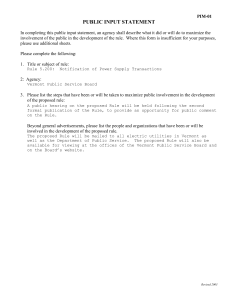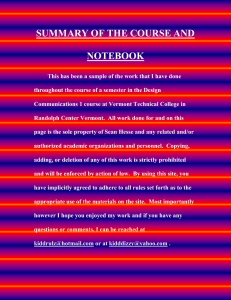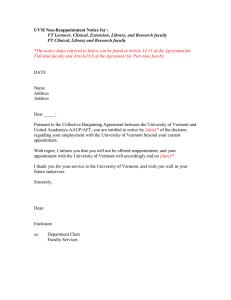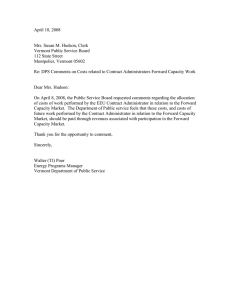Homework Policy - Vermont Secondary College
advertisement
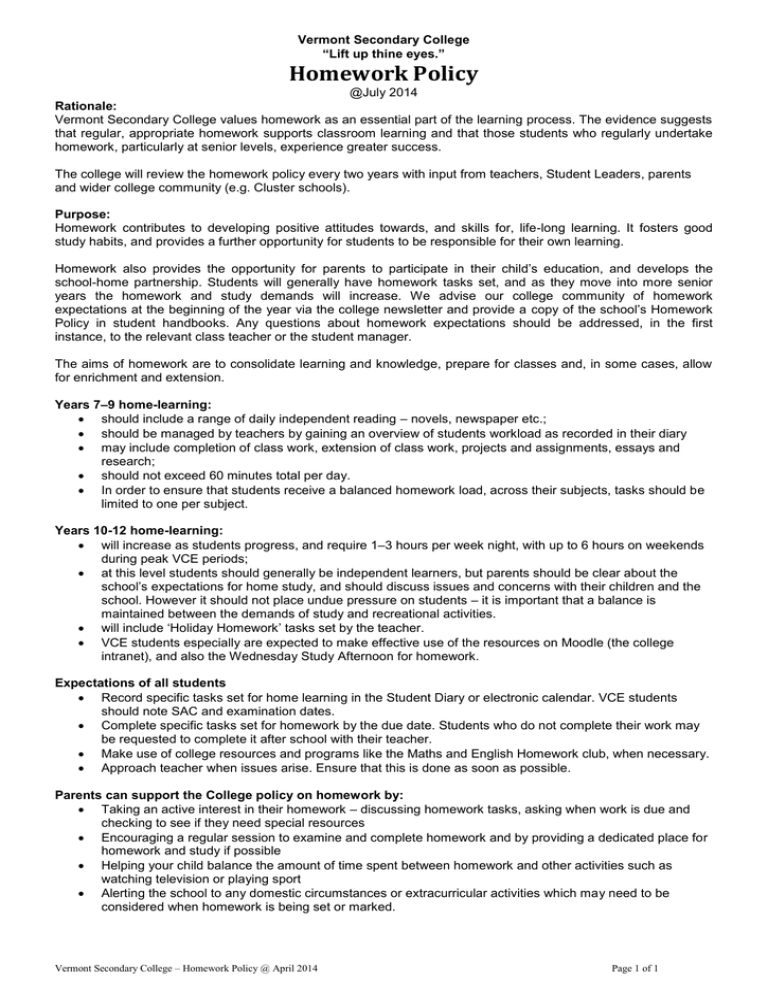
Vermont Secondary College “Lift up thine eyes.” Homework Policy @July 2014 Rationale: Vermont Secondary College values homework as an essential part of the learning process. The evidence suggests that regular, appropriate homework supports classroom learning and that those students who regularly undertake homework, particularly at senior levels, experience greater success. The college will review the homework policy every two years with input from teachers, Student Leaders, parents and wider college community (e.g. Cluster schools). Purpose: Homework contributes to developing positive attitudes towards, and skills for, life-long learning. It fosters good study habits, and provides a further opportunity for students to be responsible for their own learning. Homework also provides the opportunity for parents to participate in their child’s education, and develops the school-home partnership. Students will generally have homework tasks set, and as they move into more senior years the homework and study demands will increase. We advise our college community of homework expectations at the beginning of the year via the college newsletter and provide a copy of the school’s Homework Policy in student handbooks. Any questions about homework expectations should be addressed, in the first instance, to the relevant class teacher or the student manager. The aims of homework are to consolidate learning and knowledge, prepare for classes and, in some cases, allow for enrichment and extension. Years 7–9 home-learning: should include a range of daily independent reading – novels, newspaper etc.; should be managed by teachers by gaining an overview of students workload as recorded in their diary may include completion of class work, extension of class work, projects and assignments, essays and research; should not exceed 60 minutes total per day. In order to ensure that students receive a balanced homework load, across their subjects, tasks should be limited to one per subject. Years 10-12 home-learning: will increase as students progress, and require 1–3 hours per week night, with up to 6 hours on weekends during peak VCE periods; at this level students should generally be independent learners, but parents should be clear about the school’s expectations for home study, and should discuss issues and concerns with their children and the school. However it should not place undue pressure on students – it is important that a balance is maintained between the demands of study and recreational activities. will include ‘Holiday Homework’ tasks set by the teacher. VCE students especially are expected to make effective use of the resources on Moodle (the college intranet), and also the Wednesday Study Afternoon for homework. Expectations of all students Record specific tasks set for home learning in the Student Diary or electronic calendar. VCE students should note SAC and examination dates. Complete specific tasks set for homework by the due date. Students who do not complete their work may be requested to complete it after school with their teacher. Make use of college resources and programs like the Maths and English Homework club, when necessary. Approach teacher when issues arise. Ensure that this is done as soon as possible. Parents can support the College policy on homework by: Taking an active interest in their homework – discussing homework tasks, asking when work is due and checking to see if they need special resources Encouraging a regular session to examine and complete homework and by providing a dedicated place for homework and study if possible Helping your child balance the amount of time spent between homework and other activities such as watching television or playing sport Alerting the school to any domestic circumstances or extracurricular activities which may need to be considered when homework is being set or marked. Vermont Secondary College – Homework Policy @ April 2014 Page 1 of 1 References: Vatterott, C. (2009). Rethinking homework: Best practices that support diverse needs. Alexandria, VA: ASCD. Hattie, J. (2008). Visible Learning: A Synthesis of Over 800 Meta-Analyses Relating to Achievement. London: Routledge. Summary of Hattie’s findings on Homework: http://headguruteacher.com/2012/10/21/homework-what-doesthe-hattie-research-actually-say/ Vermont Secondary College – Homework Policy @ April 2014 Page 2 of 1
